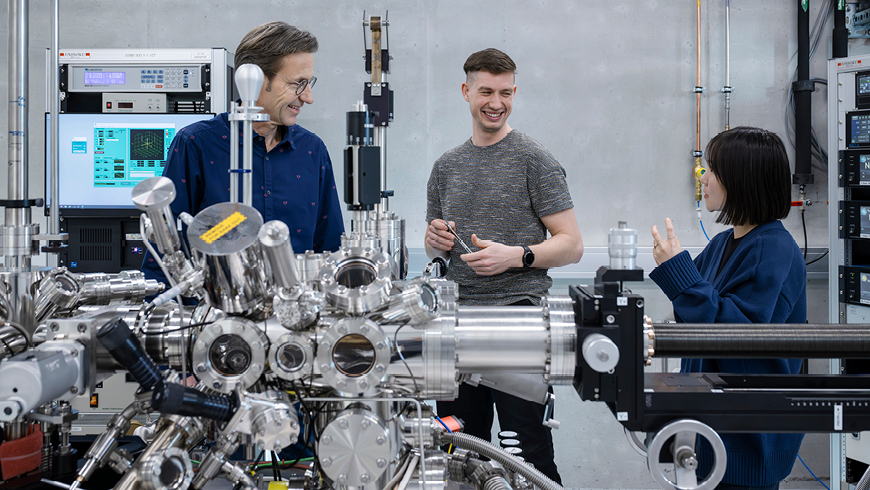Empa opens quantum laboratory

Empa has inaugurated a new high-tech laboratory that researches quantum effects in carbon nanostructures. Using state-of-the-art scanning tunnelling microscopy and microwave technology, the laboratory is intended to pave the way for sustainable quantum technologies, from sensors to quantum computers. An ambitious project that could revolutionise the future of technology.
The new Empa laboratory “CarboQuant” has set itself the goal of developing sustainable quantum technologies based on carbon. A first milestone was reached with the opening of the high-tech laboratory on 30 January 2025. The research focuses on nano-graphenes and carbon nanoribbons, which were only synthesised a few years ago. These special molecules could provide the key to new types of sensors, communication technologies or components for quantum computers.
State-of-the-art technology in use
Two ultra-modern scanning tunnelling microscopes form the heart of the laboratory. These devices enable researchers not only to visualise individual atoms, but also to control their quantum states. By using high-frequency microwave radiation, the spins of electrons can be manipulated. This is a crucial prerequisite for the development of quantum computers.
The key to the quantum world
The spin, a quantum mechanical property of electrons, can assume two basic states, “up” and “down”. In contrast to classical bits, which are either 1 or 0, quantum bits can assume both states simultaneously through superposition. This ambiguity is what makes quantum computers so powerful and versatile.
Expertise and vision for the future
The “CarboQuant” team, led by Roman Fasel and Yujeong Bae, is at the forefront of scientific research. Bae, one of the world’s few experts in this field, will lead the new research group for quantum magnetism. The aim is to demonstrate quantum control on nano-graphenes for the first time and, in the long term, to develop quantum-based devices that work at room temperature.
Outlook and goals
The project runs until 2032 and is supported by the Werner Siemens Foundation. The researchers are working on creating a materials platform for carbon-based quantum materials. The opening of the new laboratory has brought them a good deal closer to this goal. The vision is to create safe, efficient and sustainable quantum technologies that could revolutionise our everyday lives.